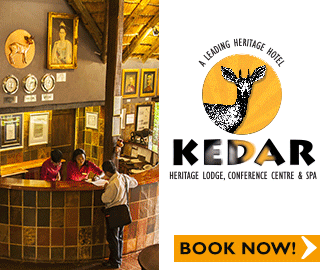
Africa is on the move!
BY MONICA ASHLEY LE-COURE 12 JULY, 2016 04:06
China’s massive growth has been one of the greatest stories over the past several decades. But the Chinese economy certainly isn’t the only one posting huge growth rates. Africa is on the move!
According to McKinsey 7 Company’s report, ‘Lions on the Move: The Progress and Potential of African Economies’, Africa’s combined Gross Domestic Product will be $2.6 trillion by 2020. The report further says that “Africa’s consumer spending by 128 million households with discretionary income is expected to be around $1.4 trillion.”
According to the Economist Corporate Network (ECN), the past twenty years, the center of the global economy has been shifting from the developed to the developing world. Today, growth rates in developing economies are many times higher than in developed economies. Sub-Saharan Africa, in particular, is one notable case in point. In 2015 Sub-Saharan Africa’s GDP is expected to grow at 4.5%, making it the fastest-growing economic zone in the world, outpacing Asia’s regional average of 4.3% annual growth.
Africa is world’s greatest sources of raw materials used in different parts of the world. That alone puts Africa at the forefront in terms of growth prospects in future. This however, depends on various variants like technological advancement, bureaucracy, corruption, skills shortages and personal safety and regulatory environment.
Rwanda’s Gross Domestic Product (GDP) increased from 4.7% in 2013 to 7.0% in 2014. This year, Rwanda’s GDP is expected to rise to 7.5%. This positive outlook comes 20 years after Rwandan Genocide which paralyzed the country’s economy. Over the years, the East African country has become a success story with unity and reconciliation forming part of reason for its fast growth. Rwanda is doing everything possible to reduce bottlenecks in transport, and energy infrastructure to bolster economic growth.
As of 2014, Tanzania had an estimated population of 47.4 million. International Monetary Fund and World Bank Group (WBG) among other development partners have supported the East African nation to make important economic and structural reforms and sustain its economic growth rates.
Despite looming poverty in the country, the new political leader, President John Magufuli is a promising change to the country. He is already in the process of minimizing the country’s overspending by cutting cost of unnecessary government spending.
Coal production has contributed to the steady growth of Mozambique. Moreover, there have been large infrastructure projects as well as credit expansion driving the economy, African Economic Outlook says.
Mozambique has attracted large investment projects in natural resources, which means the country’s high growth rates should continue. Some analysts believe that Mozambique might be able to generate revenues from natural gas, coal, and hydroelectric capacity greater than its donor assistance within five years.
According to the Gates Foundation’s report dubbed “One foot on the ground, one foot in the air”, compiled by the Overseas Development Institute, the agriculture sector has enhanced the growth and development of Ethiopia. Specifically, the sector has helped cut poverty by 7% between 2005 and 2011, despite having the lowest human development in the 1990s.
To boost productivity, Ethiopia is “Maintaining teams of agronomists across vast rural areas to boost productivity by recommending best agricultural practices and scientific innovation,” the report continues.
"Further, a doubling of Ethiopia’s road network in two decades, has allowed more farmers to bring their produce to market," said the report.
On average, Ethiopia’s economy is growing at 10% a year and it is expected to double within the next seven years. This means that by 2025, it will have grown to a middle-income nation.
Ethiopia’s economy is mostly agriculture-based, but the government has made a push to diversify into manufacturing, textiles, and energy generation. But while the country has seen and (per the World Bank) will continue to see high GDP growth, per capita income remains ones of the lowest in the world.















